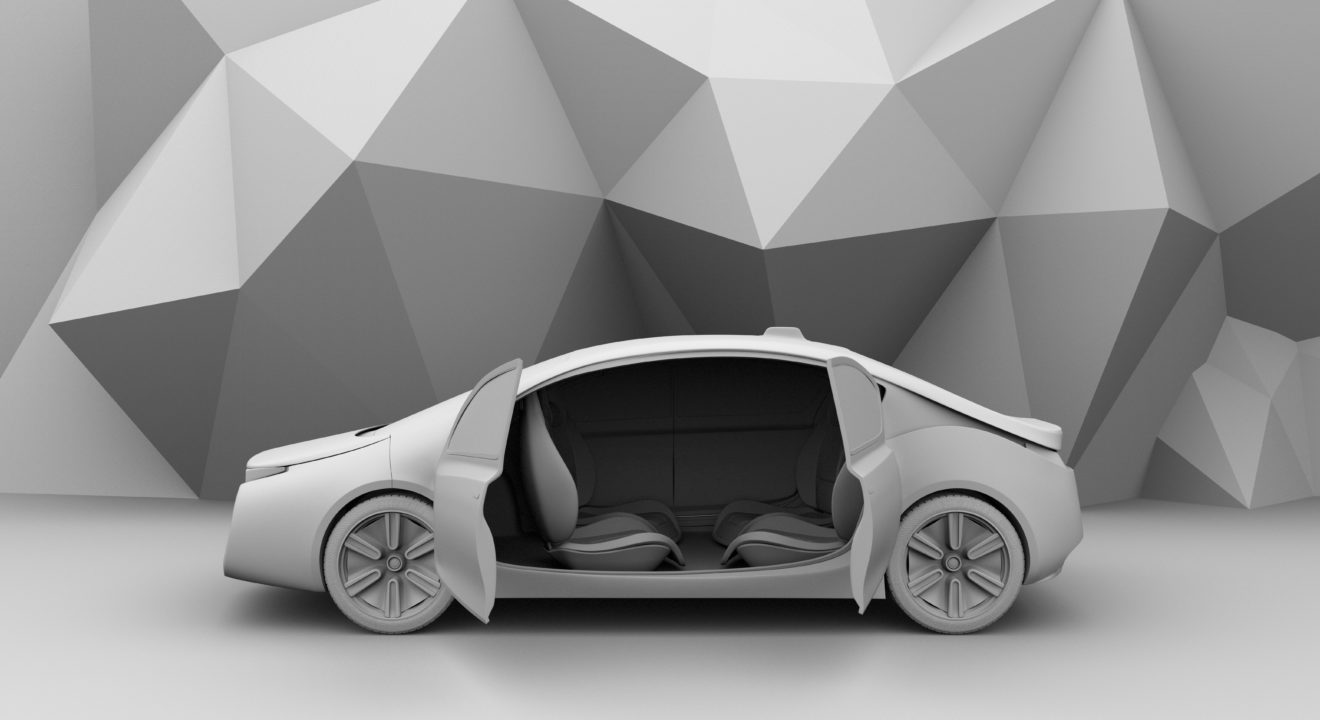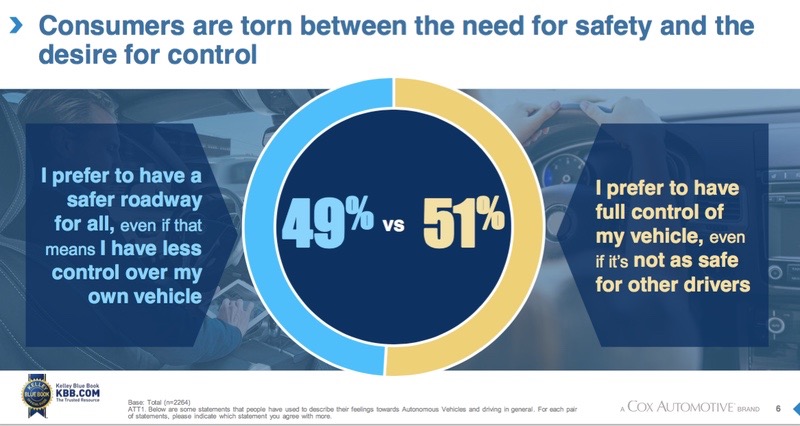Culture February 17, 2017


When it comes to self-driving cars, there is no room for error. Yet, as more autonomous vehicles are being developed, more important issues are emerging in terms of the cars’ safety, practicality and, yes, even ethics.
If self-driving cars are really going to be the new normal, drivers need to know that their lives are in safe hands (correction: wheels). To find out the benefits of and barriers facing autonomous vehicles, ENTITY chatted with Dr. Andrew Moore, Dean of Computer Science at Carnegie Mellon University with a background in artificial intelligence, and Dr. Calestous Juma, Harvard professor of the Practice of International Development and Director of the Science, Technology and Globalization Project.
Whether you’re curious about the safety, practicality or ethics of self-driving cars…here’s what you need to know.
One of the biggest arguments supporting self-driving cars centers on a single word: “safety.” As Dr. Moore explains, “All of us in the robotics world are determined that once self driving cars are mainstream, the number of deaths from cars will go down dramatically.” In fact, the numbers suggest that autonomous vehicles could cut traffic accidents by 90 percent, which could save almost 30,000 American lives per year.
While cars can be programmed to follow traffic laws, though, they can only do so much to avoid potentially dangerous situations caused by other (human) drivers. As of December 2015, self-driving cars had twice the accident rate of regular cars…usually because aggressive human drivers aren’t used to cars who really stick to the speed limit on freeways or fully stop at stop signs.
As anyone who’s ever driven in snow, ice or rain knows, bad weather makes for a much more difficult drive…and self-driving cars aren’t immune to these issues, either. Since many driverless cars stay in the lane by using cameras to track the lines on the pavement, they can have trouble when the road is covered in snow. Snow or rainfall can also keep cars’ laser sensors and radar from properly detecting obstacles in the road. To fix these issues, manufacturers are working on everything from a car with 23 precise laser sensors (presently offered by Mercedes-Benz) to a smart roadway system that can “tell” vehicles about upcoming hazards.
These changes reflect Dr. Juma’s belief that increased road safety in the future will occur mostly because of ” improvements in technology, such as the use of advances sensors, machine learning and upgrading of transportation infrastructure in general.”
All of which can basically be summed up as: self-driving cars hold promise, but today is not the day that they will make car accidents ancient history.
Perhaps the next question you should be asking after safety, though, is if people want driverless cars in the first place. In 2016, over 2,000 Americans were surveyed on their views of autonomous cars, which ranged in levels from “human only” to “full autonomy” (in which there’s not even a steering wheel). In a small majority, 51 percent said: “I prefer to have full control of my vehicle, even if it’s not as safe for other drivers.”


Via KBB.com
This split reflects Dr. Juma’s point that cars have been associated with “personal autonomy, privacy and expression of individual personality” for generations – and members of those generations will be less likely to embrace autonomous vehicles. The next generation, however, will be different. “[They will] not see a driving license as a rite of passage,” Dr. Juma explains. “This generation is being raised on the convenience of Uber and Lyft and is already halfway down the road to driverless cars.”
For Dr. Moore, the conflict between people “who enjoy driving and other people who think that human driving is unacceptably dangerous” somewhat parallels “the issues with second hand smoke.” Which side will win out is still to be determined…but it’s doubtful that either group will step down easily.
The loss of control isn’t the only loss that Americans are worried about. Personal auto insurance policies are presently a $200-billion-a-year business. However, as autonomous cars become more common and accidents are reduced (if research predictions are correct), insurance providers will be one of the companies hit hardest. (Although, if you’re an owner of a driverless car, you’ll probably enjoy the cuts to insurance costs.)
To make insurance matters more complicated, as autonomous cars become safer, human-driven cars may also be faced with higher insurance fees because of their increased “risk.” Some analysts even suggest that cars with steering wheels will become the new horse and buggy: an antiquated form of transportation whose main appeal is to collectors, not the average American. Not exactly a comforting prospect if you’re in the auto business.
For Dr. Juma, this disruption of the current automobile industry is where some of the main ethical concerns of driverless cars arise. “The shift from personal ownership of cars to driverless fleets owned by corporations will trigger ethical debates about the balance between health and economic benefits,” he predicts. “This is more a debate about business models than it is about the technology.”
That’s not to say that people aren’t also concerned with the ethics programmed into cars, though. “Someone has to take responsibility for deciding whether a risk of injury or death to the driver should be treated equally high or traded off against the injury and possible death of people in the vicinity,” explains Dr. Moore. “Or, for example, someone has to decide whether a car should try harder to save a child than an adult.”
In a 2016 edition of Science, researchers reported that 76 percent of those surveyed in the U.S. and France agreed that a driverless car should sacrifice its passenger rather than kill 10 pedestrians. The participants even agreed that programming driverless cars to minimize loss of human life was the moral decision. However, the majority said they would rather buy a vehicle that is programmed to protect themselves and their loved ones instead of pedestrians. As The Guardian put it: “Driverless cars that occasionally sacrificed their drivers for the greater good were a fine idea, but only for other people.”
For Dr. Moore, there is yet to be a clear “right” code to use for driverless vehicles. Instead, he “strongly believe[s] those [programming] decisions should be made by elected officials representing all the citizens.” You know what they say: with great power comes great responsibility…
While self-driving cars might have sounded like something out of a science fiction novel a few years ago, that’s no longer the case. There are already cars with self-driving features – like parallel parking or braking abilities – on the road. BI Intelligence even estimates that there will be 10 million cars with self-driving features by 2020.
However, cars still have a long way to go before they can drive home on their own. As Dr. Moore points out, “For all the excitement around AI, we are still building things with intelligence lower than small insects by many measures of adaptability. Designing something which does out-of-the-box creative reasoning…could come in ten years but might not be here in 50 years.”
It’s not just technology that needs to catch up, either. “The successful adoption of new large-scale technology is often associated with changes in infrastructure and legislation,” Dr. Juma explains. “It is through legislative change that citizens get to express their concerns.” And, right now, people have plenty. According to the same 2016 American survey mentioned earlier, 1 in 3 Americans claim they would never buy a vehicle that had no human aspect (i.e., no steering wheel or controls).
Until public opinion, autonomous vehicle programming and legislation all agree that self-driving vehicles are the safest, most practical and most moral choice, buyers may have limited choices when shopping for driverless cars. So, for now, we’ll just keep enjoying daydreams about a world where you can safely read the newspaper, do your makeup, and talk on the phone – all in the comfort of your driverless car.